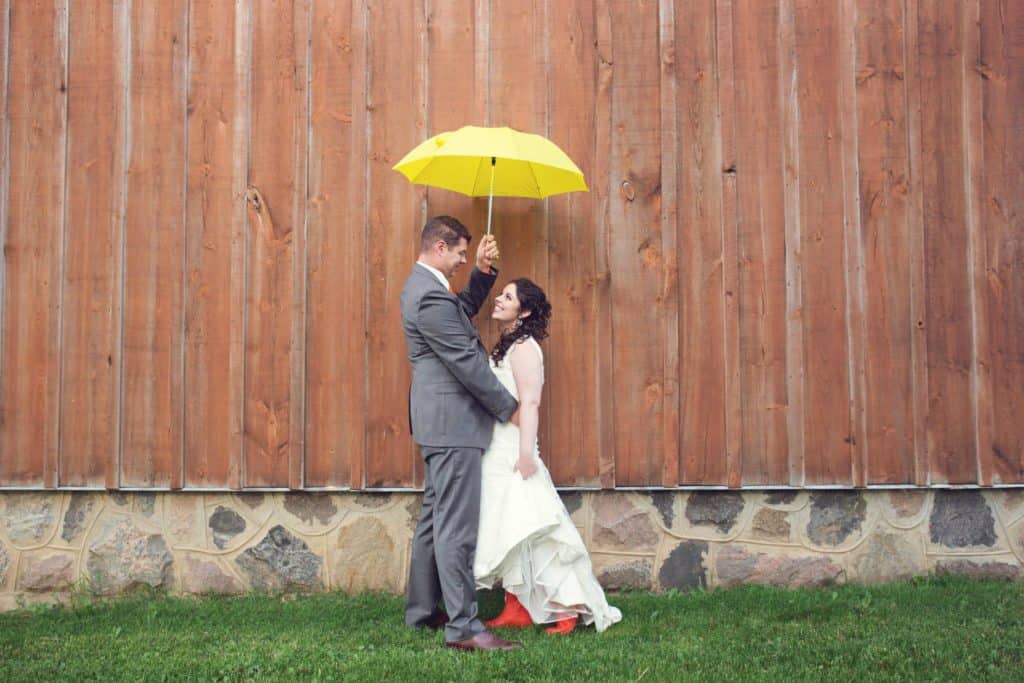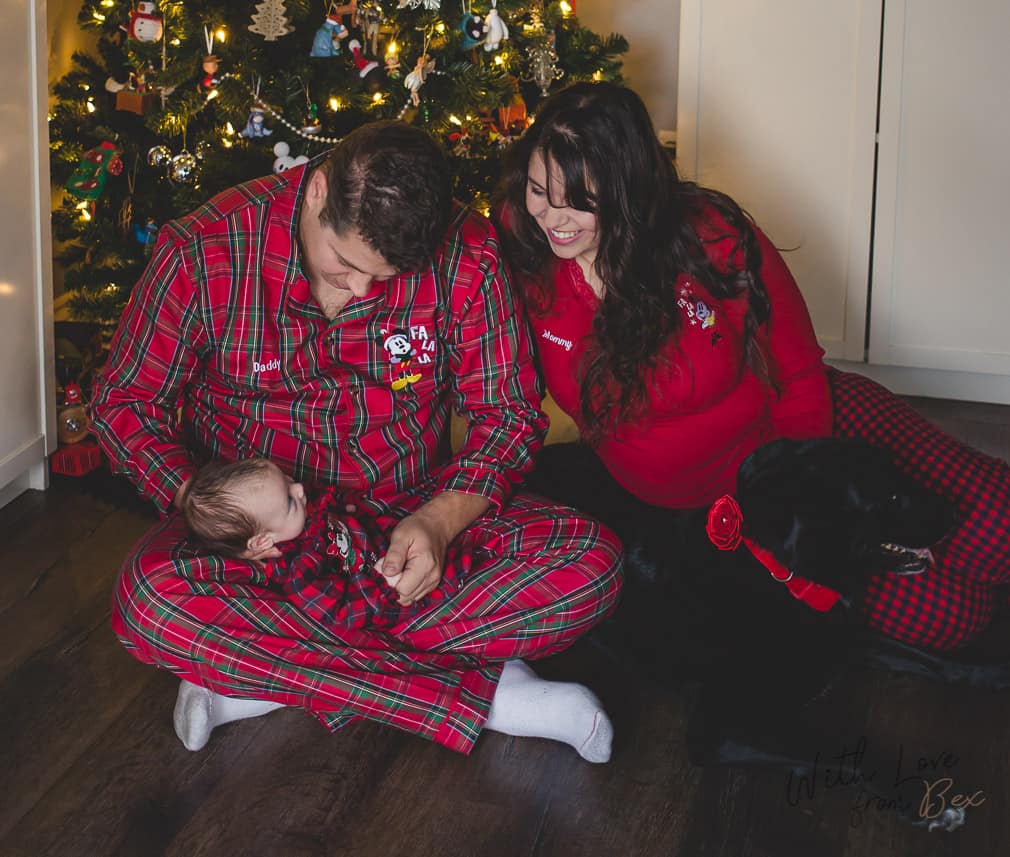
I love my husband, but I hate his PTSD. There is nothing romantic or beautiful about it. It is exhausting living in a battlefield some days while hopping through green meadows other days and waking up in the morning and never knowing which of those our family will experience.
It’s exhausting thinking about all the potential triggers that may set him off on any given day. While also thinking of the usual daily grind of raising a young daughter, maintaining a full-time job, keeping up the household, and trying to give me the mental capacity for “self-care.” I’m tired of carrying the emotional and mental load most days.
My story isn’t shared often. It’s not one people admire or want to hear. Hell, I think some people will label me as not understanding, not sympathetic enough, or, as I’ve heard in some military spouse groups, “not understanding what I signed up for when I married him.” I don’t even think people know what to do when they hear it because it challenges the hero culture surrounding veterans. Veterans are brave. Veterans with PTSD are courageous for sharing their stories, getting help, and for the sacrifices they make. But what if I told you that while my husband is all these, he is also capable of abuse and torment? Of inflicting pain and fear within our family that if he weren’t a veteran with PTSD, most clinicians would classify our relationship, our family, as dysfunctional and my experience as domestic violence.
The other day, he was invited to speak on a podcast about his mental health journey after being released. He asked me to listen to it and give him feedback. Unfortunately, I couldn’t listen to the whole thing. I’m proud of him for being on this journey, but his story, his first steps, might have been the beginning of his recovery; it is still the middle of my trauma event.
There were always red flags, but I ignored them. I remember the first time we argued while he was on an exercise. I don’t remember what the argument was about, but I do remember how I couldn’t keep up with his argument, even as he typed it on BBM. Then when he called me, he yelled at me over the phone, hung up on me, called me back 10 minutes later, yelled at me, and hung up again. I remember driving home from work in tears, trying to make sense of what had just happened. I called him back, and he ignored my call. The anxiety, the knots in my stomach, it ate me up all evening because I couldn’t figure out what I had done, what I had said or didn’t say. I couldn’t make sense of the Jekyll and Hyde experience. I hadn’t seen this side of him. Ever. It felt like the complete opposite of what I knew about him. Then at 10 pm, he messaged saying good night and didn’t speak to me until the following afternoon. At that point, I just apologized through tears. It would become a pattern in our relationship for the next 12 years.
As the years went by, I began to see patterns. If there was an important event coming up, I could feel the anxiety in the air. It was thick. I became an expert at reading his body language. A particular twist of his mouth, a glare, how much breath he put into a sigh, the heaviness of his feet from another floor, I could read it all and read it quickly, thanks to how hypervigilant I became. A few hours before our Stag & Doe, I could feel his anxiety and anger building with each passing moment. Then he opened the freezer to grab some ice, and the freezer jammed. To most people, that probably would have been a quick sigh and an eye roll, then bending over to move the bag of peas.
However, to my husband, I had overstuffed the freezer and purposedly showed him disrespect because I was careless. I remember feeling so confused when I apologized and explained that I had moved stuff into the freezer to clear up space in the fridge for our stag & doe and that I would try to be mindful in the future. He got angrier because it wasn’t about the freezer. In a matter of seconds, I was no longer in an argument about the freezer but being accused of never listening to him, never respecting him, and that I never loved him. I was utterly shocked and heartbroken and then my best friend knocked on the door, and he stopped yelling at me. But the argument didn’t stop. I put on a smile and covered my face in makeup to hide the puffiness while reassuring my worried friend that everything was fine. During set-up, if I got too close to him or asked a question and no one was watching, he would glare at me and walk away. But when the party started, and he started to drink, he forgot he was mad at me, had a great time, was incredibly loving and never mentioned what had happened again. I was left with anxiety, the memories, and an emotional scar.
Most of our major events, family gatherings, and trips are tainted in some way with PTSD. I wish they weren’t, but they are. I have spent years trying to forget awful moments during what should have been happy times. PTSD robbed us of that. On a once-in-a-lifetime trip to Paris, tears flowed down my face walking down the back streets. Multiple trips to my favourite place (Walt Disney world), and I can only think of one that didn’t have me in tears. Day trips, in tears because I couldn’t relay directions quickly. Christmases, arguments, tears, yelling. Birthdays, tears. Driving to see his grandmother to celebrate Christmas, he got so frustrated at his GPS that he purposely drove onto a curb with our daughter in the back in downtown Toronto and then had a panic attack. Hearing our daughter, who was three then, tell her dad to take deep breaths is still burned into my memory.
To handle all the chaos, I actively avoided anything that could trigger him because when he was triggered, our dog and I became his targets for verbal and emotional abuse. To make matters worse, I was dealing with my own issues. I was a Correctional Officer. There was no turning off for me. Work wasn’t safe, and neither was home. I was diagnosed with PTSD and was battling infertility. I gave everything I had left to ensure our daughter was loved and didn’t feel the burden of our household. And that left me exhausted.
I used to be an avid DIYer, but I stopped wanting to participate in projects that only involved him and me. I learned to fix things around the house by myself, fix electronics by myself, and move furniture alone and while he was out of the house. I was self-isolating because wearing the ‘happy’ mask was mentally draining. I stopped throwing parties. I tried to keep up with running with my dog but eventually, that involved mountains of energy that I didn’t have. He started becoming jealous of our dog. He would yell that I loved our dog more than him, that I had to choose her or him. He would yell at her, leave her in her crate if he was mad at her and I wasn’t home, and yell at her to get away from him. Our dog became anxious, and her separation anxiety increased. I remember hiring a dog trainer because my husband told me to fix our dog, or he would open the front door when I wasn’t home and let her leave. The trainer pulled me aside one day and said that as long as my husband treated our dog like he does, she wouldn’t get better. Our dog eventually started to become dog aggressive and more anxious. That jealousy and anger towards our dog worsened when our daughter was born.

The day after our daughter’s second birthday, I drove to my parent’s house to pick up some items; within a matter of minutes, my phone blew up with messages from my husband. He was losing his shit because the dog wouldn’t leave the front door after I left, our daughter wouldn’t stop crying, and our baby monitor wasn’t working. Immediately I knew, based on the frequency of the messages, how quickly the situation was escalating, and then he messaged that he put a hole through our daughter’s nursery door with her on the other side. My heart sank, and I immediately left my parent’s house. I knew that it would take me 25 minutes to get home. 25 minutes. I knew how quickly things could turn, and I panicked.
I didn’t want to call the police because I couldn’t justify that it was a police emergency. I then called one of my husband’s family members and begged them to check on him. I explained that he was getting extremely anxious and had put a hole through our daughter’s door. I knew that that family member could arrive within 5 minutes or less. They agreed to check on him.

During all of this, I was in therapy. I was writing in journals, doing gratitude exercises, learning about boundaries, and trying desperately to care for myself. I clung to hot yoga to help me, but even that became tainted. During my hot yoga classes, I was made aware of a massage yoga session that everyone at the studio praised. I saved up the money for weeks, booked my appointment session and counted down to that Sunday. But I never made it to that session. Just as I walked out the door, my husband and I argued. I tried putting down a boundary and was just about to walk away from the argument when he got up, went to the kitchen, and threatened to kill himself because no one cared about him. With our daughter upstairs in her nursery napping, I spent 20 minutes talking him down until I had to wrestle the knife out of his hand. He threatened to kill himself outside the house if I called the police or told anyone. I stopped leaving the house as often after that.
When he tells his story of how he realized he needed more help, it doesn’t mention how I was crying out for help for years. I was constantly pushing him to do more therapy. I was searching online forums, researching programs and services, trying to reach out to people who knew him and who he might listen to because he wasn’t truly listening to me anymore. I was doing that all while walking that fine line so that reaching out didn’t piss him off or jeopardize his career.
I did leave once after he threatened to throw our dog down the stairs, yelling at me that he hoped she died a painful death and that he wanted to be there to see it because I clearly loved her more than him. He convinced our dog would give him a heart attack and that I was to blame because I refused to rehome her. When I close my eyes, I can still see the look in his eyes, I can smell the mac and cheese I was making for dinner, and I can see the look of fear on our daughter’s face, who was only one and a half at the time. Then he stormed out and headed to work. I remember the panic as I raced through the house, grabbed passports birth certificates, and filled a duffle bag with clothes, dog food, and toys. I had no idea where I would go, but I knew I believed him. But when I got into my car, it wouldn’t start. It had sat in my driveway for too long that the battery must have died. I immediately called my brother and best friend, who dropped what they were doing and raced to help me. The next day I went back after he apologized and said there were just words and that he didn’t mean it.
He had been in therapy off and on for years, but during the summer of 2018, his psychologist asked me to come to a session with him. So, I agreed. To say that I was anxious was an understatement. I had been trying for years to get through to my husband. I spent so much of my time crying, pleading, yelling, reaching out, and begging him to listen to what I was experiencing. At times it felt like I would get through, but the following argument would prove different. So, when I walked into his psychologist’s office, she insisted that my husband had to sit in the room because he was her patient, and I wasn’t. When she said that, I could feel my body heat rising; the silence in the room only intensified the pounding in my chest. My mind raced, and I began doing a risk assessment of how honest I could be and what his reaction would be afterwards. Then I remembered what Lionel Desmond did to his wife, daughter and mom, and I knew if I didn’t tell her at least half of what was going on, my family could be the next one that made headlines.
I talked about his suicidal tendencies, anger, aggression, holes in our walls, broken electronics, panic attacks, and sleep issues. I made some mentions of our arguments, but I kept it general. What I wanted was help. I love my husband, and I know he has PTSD, and I was at the point where I didn’t know who else to turn to, but I wanted them to help him fix this. I wanted the person I fell in love with. I wanted more of the person whose laugh echoes through the house, who put on funny voices when he played with our daughter, who smiled as we drove down country roads with windows down during crisp October weekends. I wanted my partner back, I wanted to be able to breathe again in my own home, but I had no idea how that would happen if it could happen. When I was done talking, she turned to my husband and told him that he was lucky to have someone like me in life because in the years that she had been seeing him, she was hearing all of this for the first time. She said she would be writing an assessment because she didn’t realize how serious the situation was. She then had my husband fill out paperwork and asked me to step outside with her to give him some privacy. When she closed the door, she walked me down the short hallway, stopped, looked me straight in the eyes, and said, “you need an exit plan. This might get worst, much worst.” A few weeks later, it was decided that he needed a new psychologist who was more accustomed to treating PTSD in veterans.
In the weeks that followed, things did get worse. The arguments got louder. There were more broken glasses and holes in the wall. Whenever I would try to put down a boundary or walk away from an argument where he blamed me for everything, where I became the worse person in his life, his depression would take over, and he would turn to drinking. Other times setting a boundary intensified his rage. Each argument ate away at my self-worth and self-confidence. My husband projected all his fears, insecurities, and actions onto me without any kind of stable self-realization. In moments of calm, he would seem so reasonable and understanding, but within a matter of minutes, that could change. I walked on eggshells.
One day leaving dishes in the sink could be laughed off; the next, it could bring on a world of blame and days of arguments. One day he was singing my praises, telling crowds how I saved his life, the next day, he yelled at me that I couldn’t possibly be this stupid—threatening to draw on the wall with crayons to explain things to me. Some days he would get so angry with me and then so depressed that he would drink. One evening he drank a bottle of rum and refused to even look at me. He would go on hour-long walks drunk. A few times, he would pass out on the floor of our front porch, yet not one of our neighbours ever dared to call the police or get involved. I knew they could hear the yelling; I knew that they could see me chasing after him when he would storm off into his truck, threatening to leave and never come back, pleading with him that I feared what he might do, that I was sorry. No one ever did anything.

Once we got into an argument, I told him to leave to cool down, and he did. He ended up calling a suicide hotline, got angry with the person on the line and hung up. Three police officers and a supervisor showed up at our house an hour later. When my husband opened the door, one of the officers put his hand over his gun, and I remember realizing how utterly useless police were in this situation. I’m glad my husband cleared his head a bit before the police showed up because I know that he saw that hand motion, and I’m not confident that the situation wouldn’t have escalated. When they asked to speak to him, three officers surrounded him. I’m not sure if that was something they realized they were doing, but one put himself between our front door and my husband. I just prayed that none of this would trigger an episode. Luckily it didn’t. One of the officers wanted to come into our house and asked me if my husband was going to kill himself. I said that he had called the hotline and gotten frustrated with the person on the line but that there was no longer an immediate risk. Then they left. That would be the only time police would show up at our home. I never did call the police for several reasons, especially since I thought it could do more harm than good. I learned to rely on my support group, which included my brother, best friends, and uncle. With every call, I made to them, every picture I sent, their concern for my safety, our daughter and my dog grew. They encouraged me to leave, but I knew that leaving could make things worse, and that was a risk I didn’t want to take.
When he was finally admitted into Homewood’s outpatient program, I rejoiced, thinking this was the golden ticket. It wasn’t. While he learned a lot at Homewood about coping strategies, and he did find it helpful and got a lot out of it, and there were significant improvements, it ended up creating a sense of false healing in him. Our arguments took on another element. Now he would use his time at Homewood as ammunition. My years in therapy, group sessions, and self-work became meaningless to him. I was the one with the more significant issue now. He began advocating that my own therapy wasn’t working because I wasn’t changing enough, because I was to blame for most of our arguments due to my lack of ability to communicate with him. That I was damaging our daughter because I caused our arguments. He advocated that my psychologist wasn’t equipped to deal with me and that she must have been unskilled. He would argue that I needed to go to Homewood. That he took steps to get better, but that I didn’t. His solutions to our arguments were black and white. I needed to change, and to do so; he would argue that I needed to raise the stakes if I failed. During a trip, he argued that if I was serious about changing, I should agree to give up custody of our daughter if I failed or repeated the mistake of not listening to him. Or that I should agree to cut my hair short because he knew how much my long hair meant to me. I knew what these attempts were, a desperate person trying to understand and control situations that felt out of his control. But knowing that made it no easier to deal with or be on the receiving end of.
At the time, we started couples therapy, and that failed miserably. The therapist could tell there was a power imbalance in our relationship. Any time she questioned or suggested that my husband change his tone or how he spoke to me, he would get annoyed and refuse to participate. The arguments after each session were some of the most damaging. Finally, we stopped going because he believed the whole system was rigged against him.
He began saying that his new psychologist thought I wasn’t taking care of myself, that if I had an issue with his behaviour, I should just leave. Eventually, the weekly checks-in at Homewood stopped, and things got bad. We would have periods of amazingness, periods that I remember telling my support network how amazing he was doing but almost overnight, that would change. Triggers or stressors can throw my husband back into relapse.
I became bitter and resentful. I resented the Army. I didn’t want any part of it. I didn’t want to go to any medal services; I didn’t want to attend Remembrance Day services and hear all the wonderful things being said about my husband’s recovery. I became so desperate to be seen that I didn’t care who was around anymore or where I was; I just wanted someone to see me, to hear me. I don’t know what I thought they could do, but I was just burnt out and exhausted.

It felt like the entire support system focused on my husband. Access to resources went through him. My husband is not 100% disabled and is still employable, so any burnout I experienced, I had to find my own resources. I quickly learned that the only way I could access some resources was if I was classified as my husband’s caregiver, and that would destroy my husband and essentially make his situation worse. It would also require me to give up my employment and income, which I couldn’t do. So we were in this situation where it was bad, but apparently not bad enough. Maintaining employment is hard when you have a loved one suffering from mental illness. Finding the energy and mental capacity to do anything beyond surviving is hard. I went from being someone who kept a clean home to a cluttered jungle, but if I needed to access that resource for house cleaning and garden work, it had to be done through my husband.
I was finally ready to divorce him just before the pandemic hit. I was tired of feeling helpless and tired of the rollercoaster ride. I remember having a meeting with his psychologist and feeling so invalidated and judged. I don’t know if my resentfulness tainted how I received that meeting, but I felt judged. I remember leaving her office and feeling like she barely knew my husband and our struggles. She was reducing her time with him because he was getting better, and all I could think was, how would she know? She only meets with him once a week; I live with him 24/7. We gave couples counselling another try, and while our therapist is one of the kindest I’ve met, I still remember those first few meetings feeling incredibly invalidated. Feeling like his PTSD and reactions were reduced to mere personality differences. The pandemic strained our relationship and paused my plans to separate from him. But, we continued to go to counselling together, and I eventually started to feel some hope again.
I’m not going to sugar-coat this and say that things are magical and amazing and PTSD is behind us…it’s not. It probably never will be. Each bump in life can set my husband back. His recovery is fragile and vulnerable. There are still times that I find myself confused and crying in the shower.
I was listening to a podcast that invited the spouse of a veteran on their show. When the hosts asked her if she could go back in time 20 years, what advice would she give herself? Immediately I knew what my answer would be. Run. Run fast, run hard. Don’t look back. And that makes me feel guilty, ungrateful, and just overall like a shitty person. But if I’m being honest with myself, it’s the truth. But I didn’t run, and I continue to choose not to run. It’s not easy, and I work through a lot of guilt, especially surrounding whether I’m making the right decision for our daughter. But I wake up every morning and check in with myself. Each day I decide if this relationship, this situation is still healthy for me.
Our family looks and feels different than it did five years ago; heck, it looks better than it did five months ago. But our situation isn’t black and white. People aren’t black and white. My husband’s commitment to recovery is something I admire and am amazed at, even after all that’s happened. But that doesn’t change what I experienced. That doesn’t change the anxiety and struggle that I now deal with, my daughter’s experiences, or even what our dog has gone through.
We’ve all changed; we had to in order to make this work because we’re not a veteran and his family. We are a family, and we all deserve to be seen and understood.





I am sitting here crying, glued to every word you have written. It is like you have written my personal diary… the one I don’t share with anyone but God. My husband has CTPSD( he was a veteran, but no combat. His condition came from a horrific childhood – years of sexual, verbal and physical abuse). It is uncanny how exact the symptoms are and what life has been like on my end, and my two daughters. It is a roller coaster ride…. And I am SO tired… I completely understand your feelings. It’s like I am raising a little boy, and don’t have a spouse. I will pray for you and would love if you could pray for me!
I am not sure how I came across this article, but I can tell you how much I needed to read this! I feel helpless, alone, and I have nobody who can understand or who has passed to even remotely a similar situation. What you described feel like my life, and I have no hope that one day will be better. Almost 20 years together! Very very similar story. Thanks for writing this!
I’m glad I found this. Thank you for sharing. While I’m not glad that others share this horrific way of life, I am glad that others can relate to the absolute hellish life we endure living with some with severe PTSD. My husband is a disabled combat veteran that saw severe combat. I’m pretty sure he’s killed sometime over there. Everyday it’s a battlefield at our house. The drinking compounds it. Thankfully all our children are grown and moved out so they don’t have endure it anymore. I recently went back to work (he literally made me saying we were broke when we were not). Now I get the wrath everyday when I get home that I leave him alone everyday and he’s angry and drunk. I can’t win! I walk on eggshells everyday. Some days when it’s the worst I can only think about ending my own life. I’m at the end of my rope. If I even tried to divorce him he threatens suicide. I do not know how much more I can take. It’s been 15 years. I’m beat down emotionally and physically. There is not joy left.
I could have written this. I am still living it, myself. The pain, fear, numbness, anger, sadness, confusion.. Lather, rinse, repeat. I hate how many are going through this. It gets so hopeless sometimes. Many of us are staying because it’s safer, or we think it is. I’ve physically separated from my husband only to let him back in because at least that way I have control and my kids are ALWAYS with me. There are too many of us. My heart is broken. For you. For all the others. For myself. For our children.
Everytime all i think us “EJECT”
But we don’t. We are a family that protects not just America but each other.
Thank you for your honesty. I feel it too.
I can’t thank you enough for writing this. It makes me realize that I am not alone. My husband of 30 years has severe PTSD and we have struggled bad for the last 2 years. I am constantly worried and always afraid. He makes me feel like I’m always the problem and it’s so draining. I have no confidence and still trying to decide if should stay or go.
My heart hurts for you. After almost 25 years of marriage my husband has just been diagnosed with deployment derived PTSD. The last few years have been a hurricane of constant blame. With the knowledge of his diagnosis he has somehow doubled down on blaming me for his insecurities. I’m constantly accused of being disrespectful or not allowing him to take the leadership position in our family. All intimacy issues are my fault despite his diagnosis with ED. if I dare bring up an area of concern I am quickly accused of sabotaging him or attacking or even outright lying. My discussion can never be about a legitimate concern, it is always warped as my attempted to cut him down. A simple question asking about a situation between him and our oldest son turned into an hour of him accusing me of disrespect. On multiple occasions he has lied about our finances, often taking out loans and letting payments go to the point of bankruptcy without telling me. Several years ago I took over our finances just so we could keep our home. Those were the big lies I caught him in. They made me paranoid about what else he could so easily lie to me about. If I even dared to glance at his phone during that time he accused me of controlling him and disrespecting his privacy. His solution to
explain the lying was to claim I was unapproachable and it was my fault he didn’t feel safetalking to me.
He hates my family and all of my friends. He constantly complains about my jobs, even calling one of my employers and telling them I quit. I feel like I am suffocating in his negativity and cling to raising my three children. I pour myself into church activities with our children and he accused me of being a fake Christian and only volunteering so i can look good.
The one time I left, after a particularly deranged rant aganst me, he went to my parents home to tell them how much he loved me and how unstable I am right after calling family services and claiming I had beat him with a frying pan- absolutely ridiculous. He now claims it was a neighbor that called but it was him. My family believed him.
I love my husband but I haven’t seen that man for a very long time. Some days it seems like he is coming back but, it’s never real. if I could go back 26 years ago… Run would be the right advice.
I can’t believe how many of us have the same story or very similar. My hope is lessening when the dark days last longer. I knew it was getting bad when after a night out with friends, he had unkind things to say but didn’t want to be held accountable for them. It was my fault he got angry because I wouldn’t shut up, it was my fault he grabbed me and wanted to hit me because I didn’t stop, I pushed him too far and I should know better.
The lack of self worth, confidence and purpose is driving our life right now. We are falling behind because he doesn’t want to work. When he does get a job he is always complaining he is behind on all the projects. He says he has no time. He says he wants to live off the grid but never says outright he would leave his family. He has no more catholic values. His is inability to recognize the pessimistic views that run his mind and pursues our lives is exhausting. I never know what is going to trigger him so walking on egg shells is a daily occurrence. I hate when my work has me travel overnight because him having to tend to the kids (we have 6, two under 5), make supper, manage the household triggers him every time.
My husband has a horrible addiction to pornography in which is self loathes in. I hold him accountable when he gets caught for hiding and lies about his usage and his response is I’m always attacking him and he is always going to be such a piece of shit. He then argues that what am I the only person in the world with problems…he always redirects to other people’s lives instead of living in our life together. Finding peace and just doing the right thing as a spouse.
When he drinks and gets drunk and hasn’t been triggered he is loving and very affectionate. When he isn’t and he is in a dark mode I don’t even get acknowledged. Not even a hello after a two day long work trip. I just go to bed…without him. He is playing video games or doing something for him. My husband doesn’t even know my favorite color because he doesn’t span outside of his wants or likes. He is a very selfish person but pretends to be selfless. He refuses to talk to me and blames me for being a horrible communicator. He says I speak too smart for him. I do it on purpose to make him feel dumb.
I’m sad. I’m scared he is going to hurt himself at some point, I’m scared he will hurt me again. If I leave he will wither away to nothing as he literally does not know how to take care of himself. I do everything. Laundry, dishes, bath time, supper, breakfast, lunch, cleaning,
I don’t know what to do. Live in his PTSD shadow my entire life in hopes our children aren’t affected ? Or do I leave and break up my family again as both he and I have been married prior?
I hate the army and everything about it. I hate what it’s done to my husband. I hate PTSD. I hate the manipulation he has been through while being in the army. I hate he won’t get help. He doesn’t sleep, he has heart problems, he has severe depression and been diagnosed with personality disorders, he refuses therapy. He said tonight there is nothing to life. You life and then die and that’s it.
Im a disabled veteran and your words have stopped me cold in my tracks. Have I been this oblivious myself? I know I have had similar arguments and similar instances where I degrade my wife’s intelligence or lack of communication skills and root that as the cause for our pains. Is it that we can’t be fixed? I also do counseling and I feel so many who haven’t been through what we have put so much blame on PTSD that they forget to remind us to be accountable. We can change but we have to want it more than being right all the time. The personality types who go into the military and survive combat aren’t the best ones to relinquish any control when needed. I pray to God my wife knows how bad I need her. I tell her but I hope she truly knows. Without her, I would NOT be here. Those suicidal threats are real from us. You’re the last bit of good we have in this world and without it, makes the world useless anymore. Selfish, I know. With kids especially but serious all the same. If I didn’t have her, I’d be empty. You would have ran 20 years ago, maybe we would have from signing up. Idk. I’m proud I served but I’m not proud of who I am anymore.
As ai read this article I felt like it was my story. My husband is a combat vet with PTSD. I went through it and still am. He did try to kill himself, walked out the car and left us there, cut himself, tried to kill himself, broke stuff, made holes, he was emotional abusive, deprived me from sleep to argue, screamed at the dog and kids and me, and always angry. I never told anyone because when I did they would just say leave him like if it was so easy. I was so depressed, tiered, frustrated,and had bad anxiety. Now it’s better but he has PTSD so when he has those episodes it hurts. Your story made me remember everything from 2015 till now. Suicide line is a joke they also called the cops and he managed the situation well I really was scared everything would be out of control. I make sure my life is secret. Even now I’m still doing some of those things and realize I need help but don’t have time. I have a husband with PTSD, a daughter with mild ADHD, a daughter with autism spectrum level 2 , a toddler , full time work, cleaning. His family does not want to do anything regarding his PTSD and my side is helpful but always judging. I feel so alone but found God and that’s who I’m holding on to.
My veterans ptsd has gotten worse he makes me his wife feel worthless our three boys he name calls us all he has explosive anger we hav. Been married for 17 years he’s not the same guy I remember I have very high anxiety im
stressed all the time
I am in a state of shock as I read this! I am a 100% disabled combat veteran with a PTSD diagnosis. My PTSD has caused me to lose the one person I love and trust more than anything. It has caused me to lose everything I hold dear; including the woman I love very much. My wife meant the world to me! I lost her because of my PTSD. She recently filed for divorce and moved out of the house. At first, I was confused and couldn’t understand why she would do this. I never cheated on her and was always faithful and loyal. I did not physically abuse her or anything like that. But, there was yelling and screaming as well as other issues. I look back now and can clearly see how messed up things were. It breaks my heart when I think about it. We were together for 15 years, and she told me she was lonely. That really upset me and made me feel horrible. I can not begin to describe the shame and guilt I feel over ruining my marriage to a wonderful woman. This article was a eye opener. I wish I could have read it in time to save my marriage